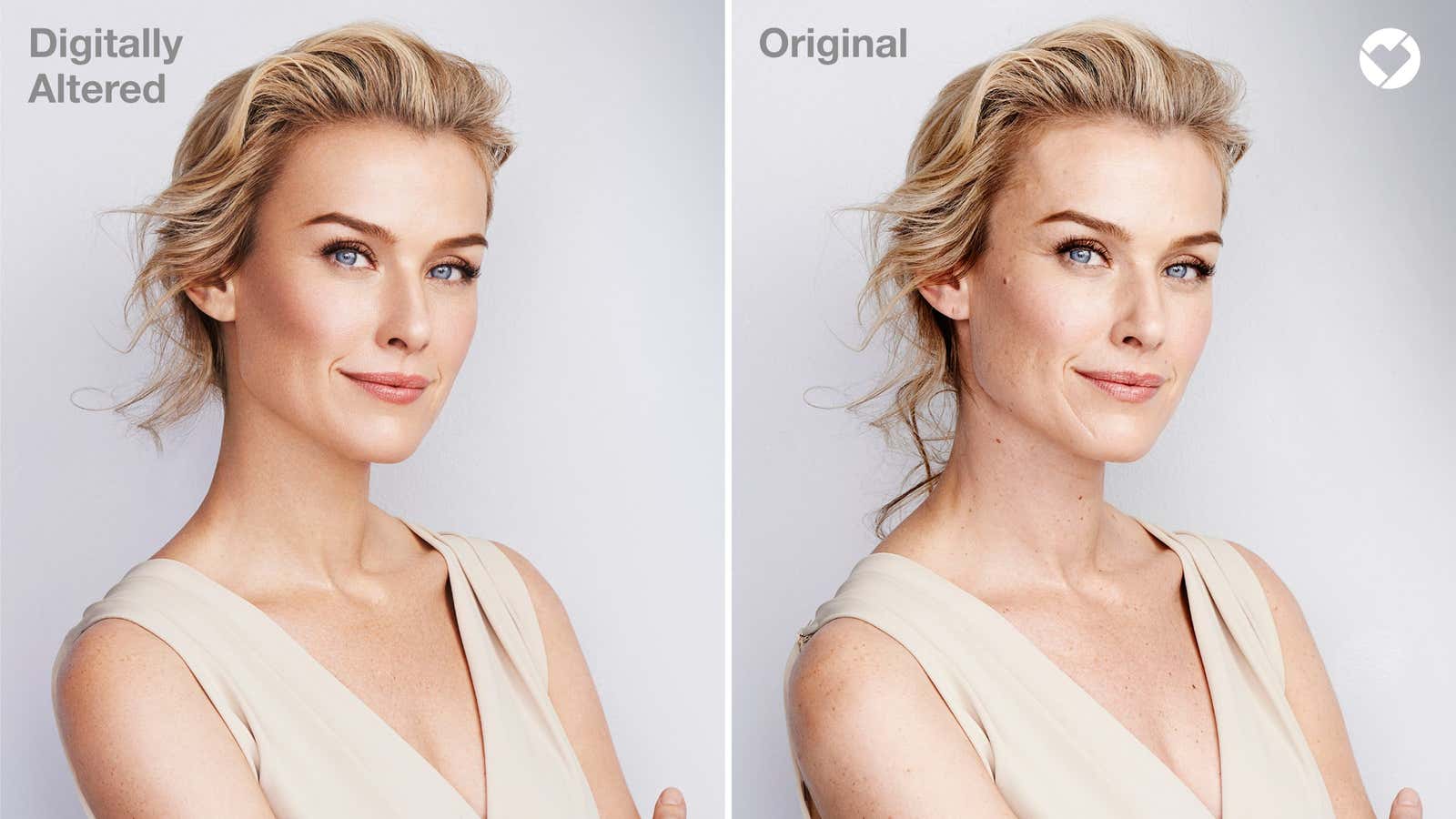CVS says it’s done with heavily retouched makeup ads, suggesting they set an unrealistic and unhealthy beauty standard for the millions of women who shop in its stores.
“We will not digitally alter or change a person’s shape, size, proportion, skin or eye color or enhance or alter lines, wrinkles or other individual characteristics,” CVS announced yesterday (Jan. 15). The new policy applies to the beauty imagery in its stores, marketing materials, websites, apps, and on social media.
CVS also said it’s going to start putting what it calls a CVS Beauty Mark on images that have not been “materially altered,” which it defines as changing any of the above-mentioned characteristics on a person. Other changes, such as “cleaning up flyaway hair, smoothing out a wrinkle in clothing, making a shade of lipstick more vivid” and other “non-material” changes will still be acceptable, according to a spokesperson for the company.
CVS says its intent is to help customers differentiate between realistic images and ones that have been retouched to make skin look inhumanly perfect, or bodies unnaturally slender and flawless. “We’ve made this decision based on the American Medical Association identifying the propagation of unrealistic body images as a significant driver of emotional and mental health issues,” a CVS spokesperson explained.
On the beauty imagery CVS produces itself, it will start applying its mark this year. By the end of 2020, it wants all beauty imagery in its stores to make clear when a person has been retouched. In a statement, Helena Foulkes, president of CVS Pharmacy and executive vice president of CVS Health, said the company has already reached out to its beauty partners to work with them on this issue.
Those brand partners include major cosmetics players such as L’Oréal, CoverGirl, and Coty, and CVS certainly has some leverage. It operates about 8,000 CVS stores (pdf), plus roughly 1,700 pharmacies within Target stores. In almost every major US city, CVS and Walgreens together control at least half the drugstore market. And across the nation, eight out of 10 Americans are within a 10-mile drive of a CVS.
The company is also joining a movement with momentum. Dove has pledged to use no models in its campaigns and never to present “the unachievable, manipulated, flawless images of ‘perfect’ beauty which the use of retouching tools can promote.” American Eagle’s lingerie brand, Aerie, ditched retouching years ago, and enjoyed a boost in sales.
CVS may be hoping for a similar reward for its $3.4 billion a year beauty business, as it faces a competitive market. But the move is also in keeping with CVS’ positioning as a company focused foremost on wellness. That’s why it started phasing out tobacco products in 2014, a decision CVS framed as helping to prove that commitment.
